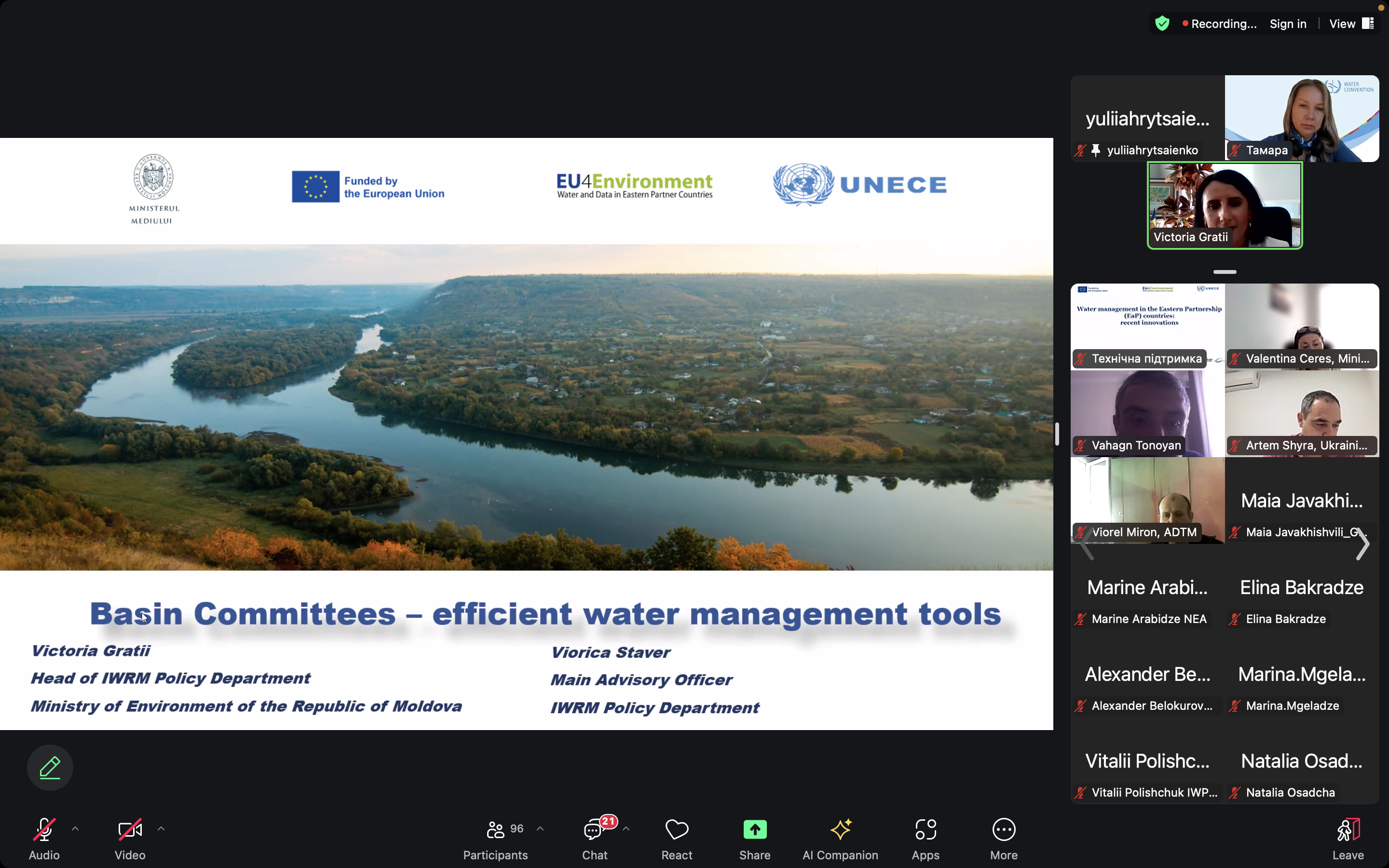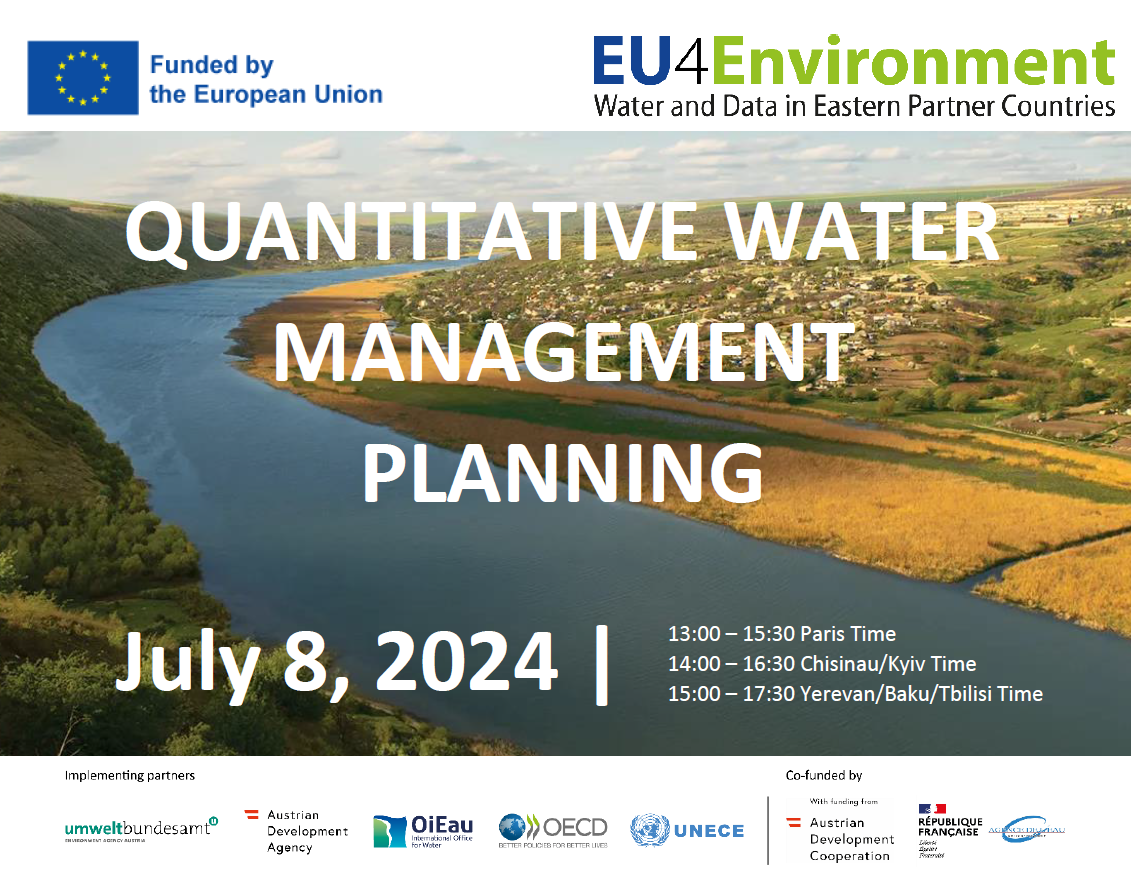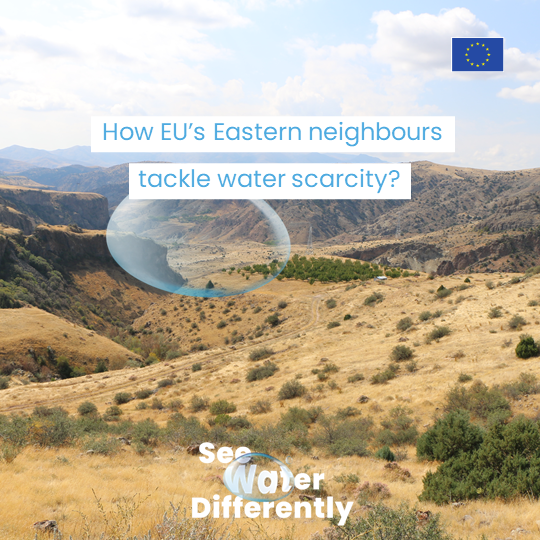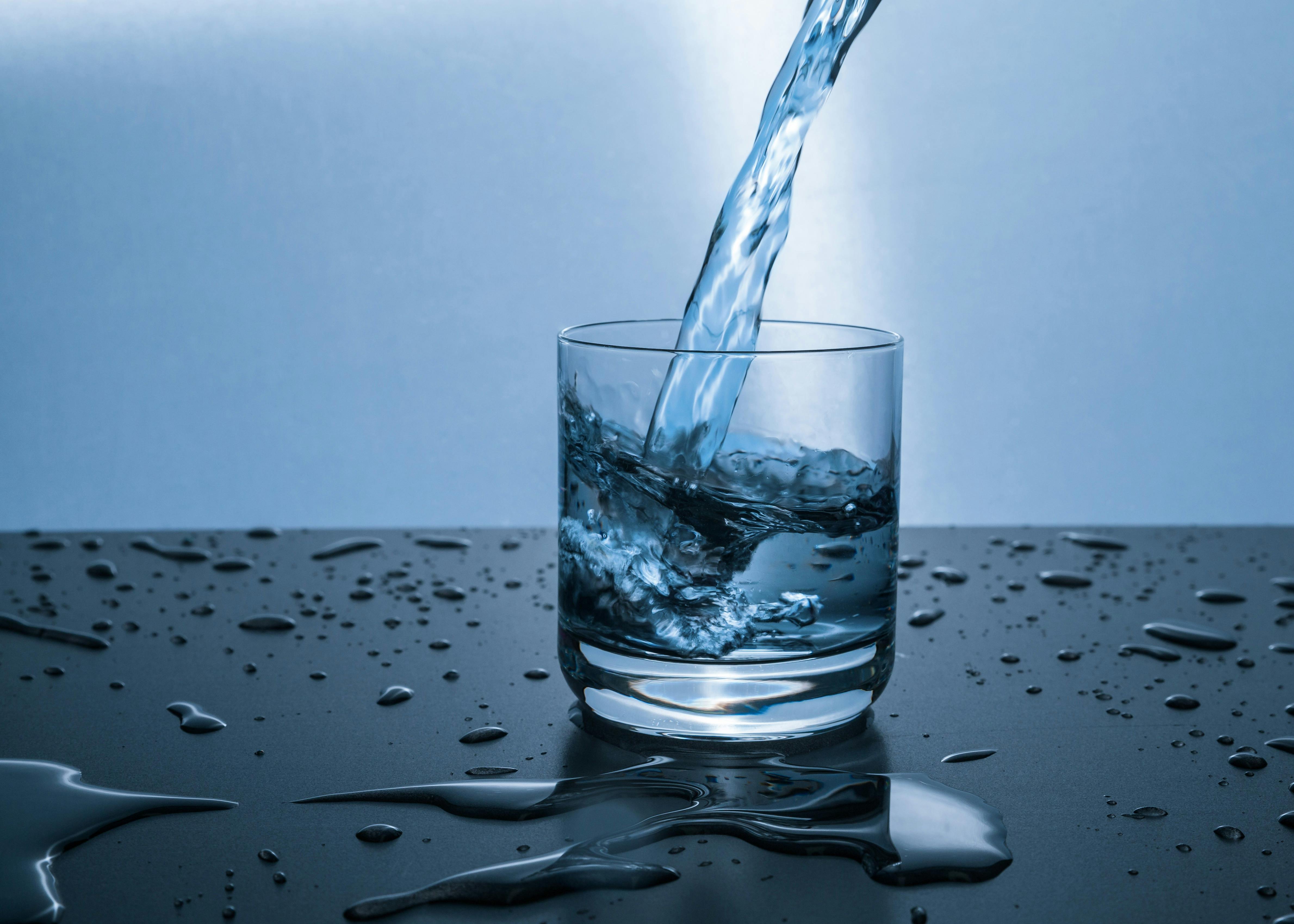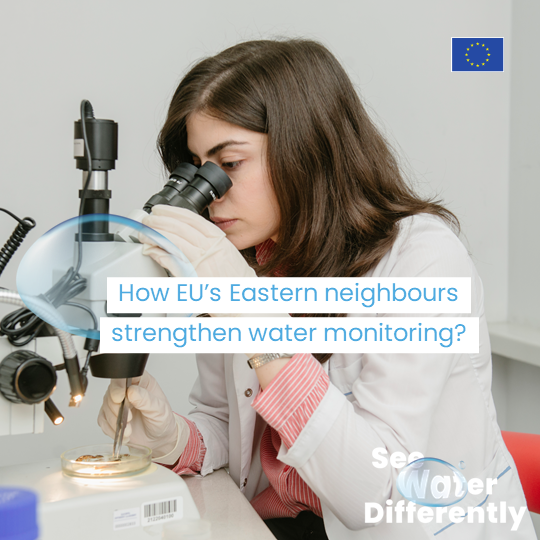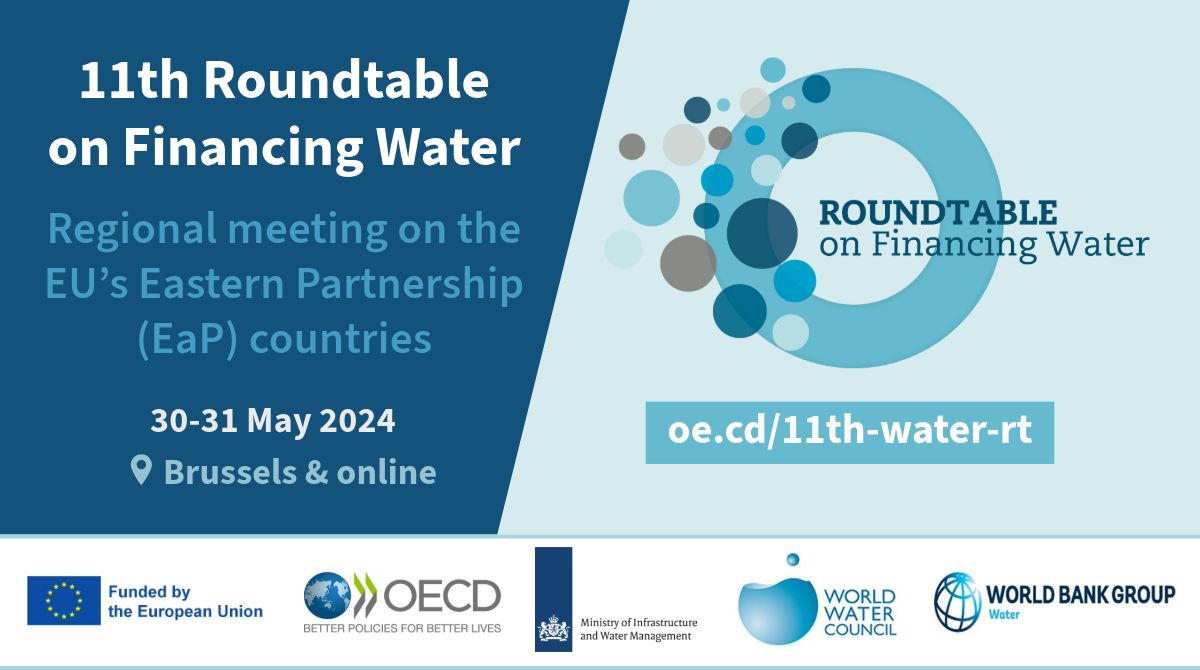- Country: Regional
- Component: Water resources
On September 18, 2024, the online event served as a platform for the five Easter Partnership countries—Armenia, Azerbaijan, Georgia, Moldova, and Ukraine—to share their experiences and case studies in modernizing water management practices. Organised by UNECE under the framework of the EU4Environment - Water and Data programme, this workshop was attended by 100 participants, including decision-makers, scientists, and water management practitioners from sectors such as agriculture, hydropower, and environmental protection.
Key Discussions and Case Studies
Each country highlighted their efforts in advancing water management policies.
- Armenia opened the discussion with insights on its the Water Users Associations and the environmental flow. Martiros Nalbandyan, Deputy Chair of the Water Committee of Armenia, and Vahagn Tonoyan, local representative of the EU4Environment-Water and Data Programme, presented these significant steps in managing water resources effectively.
- Azerbaijan followed with a presentation on the creation of the State Water Agency and innovations in wastewater reuse. Rafig Verdiyev, local representative of the programme shared the progress made in these areas.
- Georgia presented the mapping of nitrate-vulnerable zones and implementation of hydro-biological monitoring in key river basins. Experts like Mariam Makarova (Head of the Water Division, Department of Environment and Climate Change Ministry of Environmental Protection and Agriculture of Georgia (MEPA) and Marine Arabidze (Head of Environmental Pollution Monitoring Department, National Environment Agency (NEA) explained how these initiatives help protect water bodies from agricultural runoff.
- Moldova contributed by discussing the development of basin committees and the inventory of dams. Victoria Gratii (Head of the Integrated Water Resources Management Department, Ministry of Environment of the Republic of Moldova) and Vlad Ceban (Senior Specialist of the Capital Investment and Project Implementation Service) elaborated on their integrated water resources management efforts.
- Ukraine concluded the session with insights on national basin councils and a government-funded water monitoring network, aligning with EU Water Framework Directive (WFD) standards. Igor Gopchak (Deputy Head of State Water Resources Agency of Ukraine (SAWR) and Maria Shpanchyk (Head of the Department of Water Resources Management, SAWR) highlighted Ukraine’s commitment to improving water quality and governance.
Feedback and Next Steps
The event received positive feedback, with participants appreciating the collaborative approach and the exchange of knowledge. Gerald Audaz (Economic and Investment Plan for EU's Eastern Neighbourhood region, DG NEAR, European Commission) from the European Commission and other high-level officials expressed their support for continued cooperation. Based on the success of this event, there is potential for organizing additional follow-up meetings.
This event marked another significant step in the EU4Environment - Water and Data programme. As innovations and collaborative efforts continue, the future of sustainable water management in the Eastern Partnership countries looks promising.


